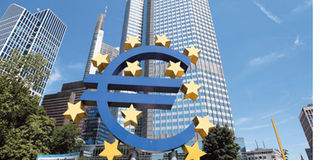New tans, same old ‘polycrisis’ as Europe’s summer comes to an end

The European Union grinds back into action this week after its August break. PHOTO | FILE
What you need to know:
- When President Jean-Claude Juncker makes his annual State of the Union address to Parliament in Strasbourg on Sept. 14, he might easily repeat last year’s warning: the EU had a “last chance” to save itself from a tide of centrifugal nationalisms.
The European Union grinds back into action this week after its August break, still dazed by Britain’s midsummer vote to quit the EU and facing much the same “polycrisis” as a year ago: a mass of refugees, a fragile economy, hostile Russians and, yes, those Brits, now more awkward than ever.
When President Jean-Claude Juncker makes his annual State of the Union address to Parliament in Strasbourg on Sept. 14, he might easily repeat last year’s warning: the EU had a “last chance” to save itself from a tide of centrifugal nationalisms.
Last week, the EU’s remaining Big Three -- German Chancellor Angela Merkel, French President Francois Hollande and their host, Italian Prime Minister Matteo Renzi -- felt they needed to renew their vows at the wellspring of the union, the island of Ventotene, where in 1941 prisoners of Mussolini wrote a manifesto for a united Europe.
That they met on the deck of the aircraft carrier Garibaldi reinforced the sense of beleaguered leaders rallying to the EU’s defence as they contemplated an obstacle-strewn political calendar for the year ahead.
The EU leaders are first preparing for a summit on September 16 in Bratislava -- without Britain -- that aims to sketch out a post-Brexit future for the Union.
On October 2, Hungary’s right-wing prime minister, Viktor Orban, is set to deliver another slap to Brussels: a largely symbolic referendum to reject an EU quota system for relocating refugees among member states -- a scheme Juncker invested much capital in a year ago, but which has barely got off the ground.
On November 8, Orban is hoping for victory for a man he calls the “valiant” Donald Trump in the US presidential election. Few of Orban’s EU peers are so enthusiastic. They see Trump as a disruptive maverick whose endorsement of and by Brexiteer-in-chief Nigel Farage marks him as no friend of the Union.
A Trump win could snap a transatlantic coalition on Russia that is already fraying in Europe, where governments from Paris to Bratislava are seeking a review of Ukraine-related sanctions when measures expire at year’s end. Trump might also inject a new dose of post-Brexit uncertainty for world trade.
At home, all the Big Three leaders face their own electoral challenges from eurosceptics.
It starts with Renzi, today trying to persuade Italians he has the youthful energy for rebuilding after the latest earthquake in the Apennines, unlike the scandal-tainted Silvio Berlusconi at L’Aquila in 2009, when more than 300 people died.
Probably in November, Renzi will put to a referendum the constitutional reforms he says are needed to break a political deadlock that is choking the Italian economy. Polls are tight and the eurosceptic upstarts 5-Star are gunning for the socialist premier, who is expected to resign if he loses.
Hollande is threatened with a drubbing on April 23 at the hands of far-right National Front leader Marine Le Pen in the first round of France’s presidential election.
Her appeal has been enhanced by Islamic State carnage in Paris and Nice and the summer row about burkinis on the beaches, although pollsters doubt she can win a May 7 runoff vote against Hollande or any other survivor from a mainstream party.
As for Merkel, she has yet to confirm she wants a fourth term at parliamentary elections due in just over a year. The biggest threat to her re-election remains her decision last year to welcome a million migrants to Germany as EU borders buckled. That has already weakened support for her conservative party.
The writer filed this article from Brussels




